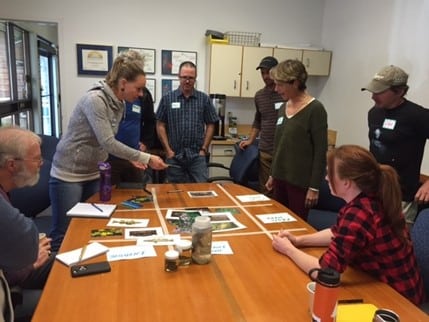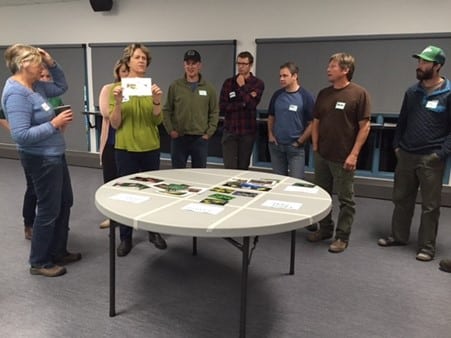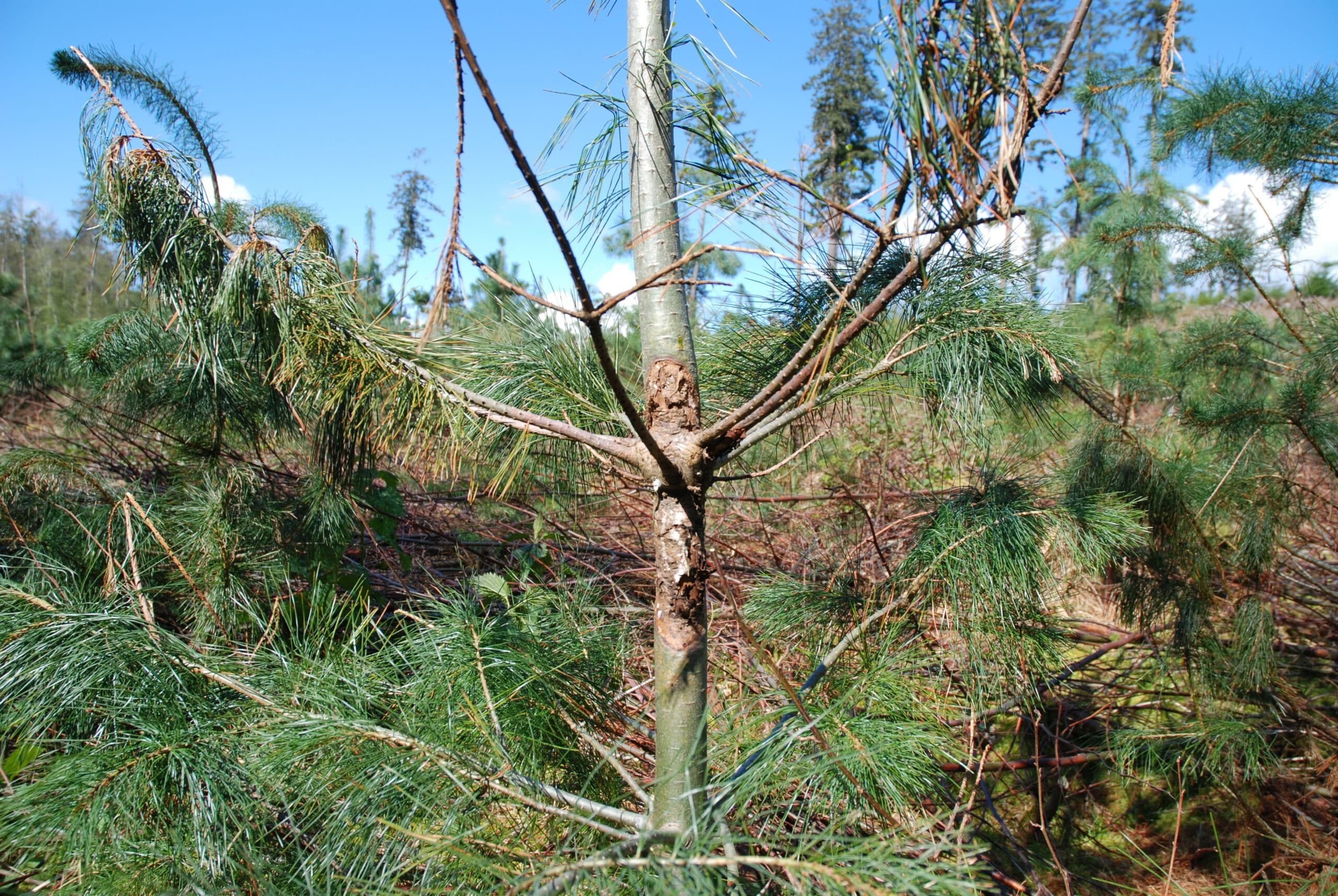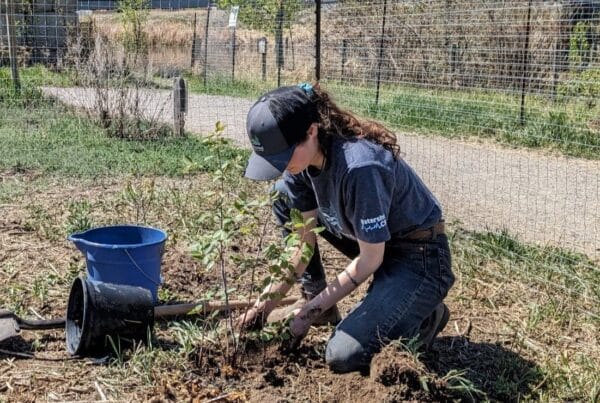By Lara Phillips | May 15, 2023
Join us every week during Invasive Species Action Month as we look at wins in the world of invasive species.
Invasive species can have a significant impact on the health and productivity of BC’s forests, by spreading rapidly and outcompeting native species for sunlight, nutrients and water. Invasive insects and pathogens, like Balsam woolly adelgid and White pine blister rust, can seriously damage trees. Once invasive species establish in forests or recently harvested and re-vegetated cut blocks, they can reduce forest productivity, timber yields, and seedling success, resulting in financial losses for forestry companies.
In addition, large infestations of invasive species increase the risk of wildfires, as they can be highly flammable and act as quick-burning fuel loads. Losses related to wildfires put additional financial stress on the forest industry. However, the impact of invasive species on forest ecosystems goes beyond economics. Losses to biodiversity, wildlife habitat, recreational and cultural values can be devastating.
Increasing knowledge of invasive species, and their impacts to forest ecosystems, is critical to preventing the introduction and spread of invasive species. Powered by knowledge, decision-makers, stakeholders, and on-the-ground professionals can take action to protect forest health. Key actions include prioritizing invasive species control, incorporating surveying and monitoring efforts into site plans, and ensuring staff members are effectively trained in invasive species management activities relevant to their positions.

With all the above in mind – there are some important questions to answer.
How can professionals develop invasive species knowledge? Where can they receive the tools and training?
Have professionals in BC been actively seeking to gain invasive species knowledge and training?
Success – and answers – are in the numbers! The Invasive Species Council of BC (ISCBC) launched an Invasive Species and Forestry eLearning course in 2019, and a Pesticide Applicator Certification eLearning course in 2021. Since then, 668 people from 53 organizations have completed the Forestry eLearning course, and 332 people from 44 organizations have completed the Pesticide Applicator Certification course. These online offerings supplement the in-person training sessions ISCBC has offered for many years, supporting industry professionals in invasive species management.

Participants included various levels of government, Indigenous groups, forestry and natural resource management companies, the horticulture industry, parks, stewardship groups, and regional invasive species organizations.
To complement training initiatives, ISCBC also developed several forestry resources, including a Forestry Operations Factsheet, Best Management Practices booklet, and a Field Guide for identifying invasive plants. In addition, new, updated resources are currently being developed with input from the forest industry, to ensure effective tools and support are in place for future invasive species management activities and planning.
“The forestry online course is really useful – it’s self-directed so staff and contractors can access it when they have time – ” – Stu’wix Resources First Nations Forest Management staff member.
“ISCBC’s online training resources are really valuable learning tools for our staff. We always pass them on to the silviculture workers as well.” – Mosaic Forestry staff member.
With an accessible toolkit of resources and training opportunities for professionals, knowledge will continue to spread across in BC. This forward momentum within the industry is essential to protecting BC’s forests from the negative impacts of invasive species.
Lara Phillips is a Special Projects Lead at ISCBC. An avid trail runner and backcountry enthusiast, she feels most at home amongst nature and cares deeply about protecting BC’s diverse ecosystems. You can reach Lara at lphillips@bcinvasives.ca
Share





